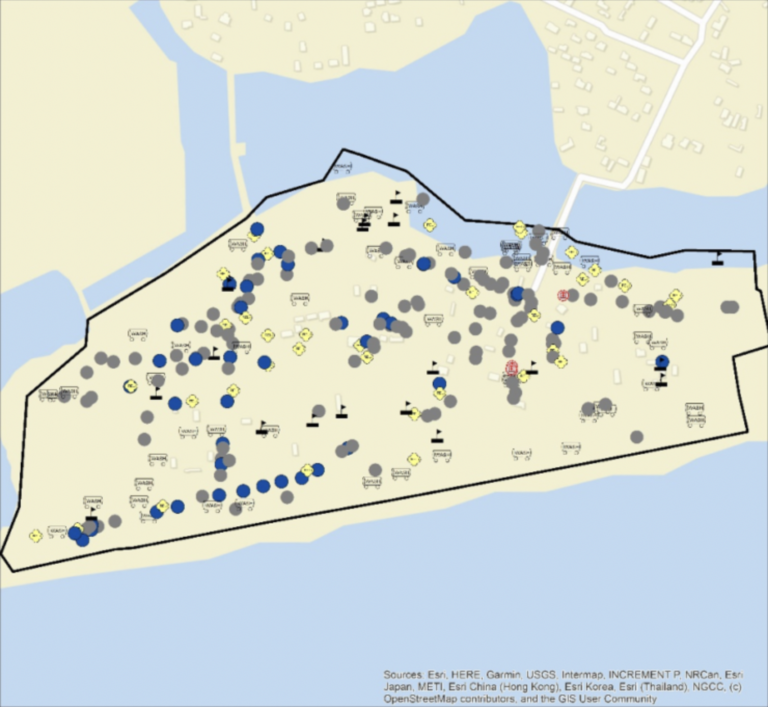GLEFE COMMUNITY
By Amoako Dennis (KYC media team) and Nyame Bekyere Federation (Ghana)

Glefe is located in the Ablekuma West Municipal of the Greater Accra region. Glefe means “Place of Snakes”. It also has an indigenous name “Ape na ye” meaning “Turn and Look”. Both names come from the Adas of the Ga Adangbe group, who were the first settlers of the community before Ghana gained independence around the early 1930s. Glefe also has the Densu wetland which is important to the international ecosystem. The wetland is home to sensitive endemic species and a welcoming stop to migratory birds. However, the wetland is predicted to be inundated as its barrier with the sea continues to breach. Approximately 21,000 people and 3,000 households live in Glefe. Glefe is a slum community surrounded by lakes and the Atlantic Ocean. Most of the housing structures are made of concrete with a few makeshift wooden and steel containers. Glefe also hosts a salt production company which is essential to the petrochemical industry in Ghana.
A current resident of Glefe, Grace Many is from Kumasi in the Ashanti Region of Ghana, and migrated to Accra in search of better economic opportunities. Due to a lack of economic opportunities in her hometown of Kumasi, Abena migrated to the capital, Accra, with little trading capital.
livelihoods.
While she experimented with various petty trading activities she found trading in used clothing quite lucrative. For about 10 years she has lived with her husband and 3 children in Glefe surviving on the little income she makes from her clothing business. Though Abena moved into the national capital for better economic opportunity, the climate risks have increased and her family has suffered seasonal flooding within the community causing her large financial losses, especially during the rainy season. She has managed the flooding each season by adopting local coping mechanisms to protect her home and valuables.
According to residents of Glefe, the most common natural disaster they face is caused by tidal waves from the sea and flooding during the rainy season. These environmental events have resulted in the loss of lives and properties worth millions of Ghana Cedis. Environmental damages occur frequently in recent times. Residents have been practicing shifting cultivation almost on a daily basis as a result of these climate change challenges, especially tidal waves which have dislocated households alongside the loss of ther